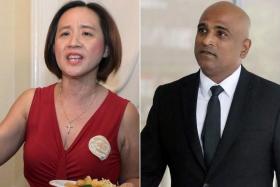TikTok to ban politicians from raising funds, selling merchandise on its platform
Politicians and political parties will be banned from raising funds on TikTok, as the short-video sharing platform moves to shore up its bid to prevent misinformation and polarisation.
It will also ban them from making money on the platform - for example by selling merchandise - and accessing advertising features on the app, it said on a post on its website on Wednesday.
The changes mean that politicians using the platform will not be able to give or receive any money through TikTok's monetisation features, or spend money promoting their content in most circumstances, it said.
The new moves, which are expected to come into force over the next few weeks globally, will help to strengthen the platform's hand in enforcing its existing ban on political advertising, it said.
It will do the same for its prohibition on harmful misinformation - TikTok has been under fire for allowing people to post unverified or false information on election-related topics in countries like the United States.
TikTok said the changes are designed to promote a positive environment that brings people together rather than divide them.
Communications and new media expert Natalie Pang said many tech platforms have been putting limitations on political advertising.
"What differs are the scale and policies - some allow political accounts to advertise only in certain regions, alongside limiting political advertising during election periods." said the senior lecturer in communications and new media at the National University of Singapore.
She added that these moves may change the way political parties - especially opposition parties which have a smaller audience and network - are able to rally and engage potential supporters and voters.
"Limitations on advertising and monetisation may impact the opposition parties, for example, on the selling of merchandise which opposition parties do here to raise funds," she said.
Government and economy researcher Woo Jun Jie said these changes may be good for users as it provides them more fair access to content on the platform by de-politicising it.
He said users are on TikTok for the content and it may be an issue if they find they have unintentionally contributed to a political party after clicking on its content.
Dr Woo, a senior research fellow at the Institute of Policy Studies, said: "Social media has long been a source of revenue for politicians through clicks and adverts, so these moves clearly cut the link between politics and money on the platform."
He added that tightening these rules is particularly important in Singapore's context as there are rules surrounding donations that could possibly be bypassed on social media.
For example, anonymous donations are capped at less than $5,000 during election periods.
The changes make the playing ground fairer for all, he said.
However, Dr Pang said TikTok will still remain an important platform for politicians here.
She added that while these limitations may change the way politicians use the app, it is still a popular and important platform to engage the youth.
These changes come amid global concern over the role of social media in the dissemination of false information, she said.
She added: "Many platforms are concerned about the weaponisation of narratives - propagation of mis- and disinformation which can divide and polarise society.
"That is a big driver behind platforms putting limits and boundaries on political advertising and may be behind TikTok's move."
Get The New Paper on your phone with the free TNP app. Download from the Apple App Store or Google Play Store now



